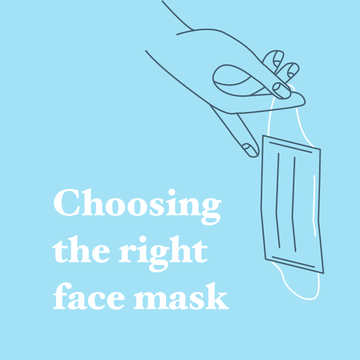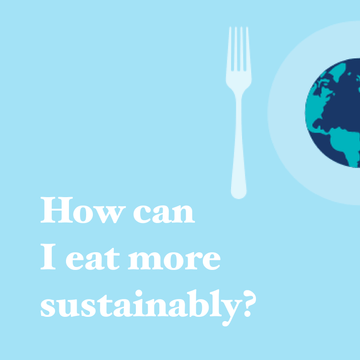
By Emily Gilbert
Wearing a mask is mandatory in public indoor spaces in many parts of Canada. Please continue to follow guidance from your local public health authority. The situation around COVID-19 is rapidly evolving. Content in this article is as of the date posted and may be subject to change.
Wallet, keys — face mask? The things we grab when we’re heading out the door have changed in recent months. Wearing a mask is one of the many measures that can prevent the spread of COVID-19. But don’t forget to wash your hands, stay home when you can and follow other public health advice in your area. Here’s what you need to know about wearing a face mask.
How to choose a face mask
Ideally, a face mask consists of at least 2 layers of tightly woven material fabric. This could include cotton or linen. A middle layer with a filter is even better. Some masks have a third layer or a pocket for a paper towel, clean baby wipe, or fabric filter. You can also make a mask using a t-shirt or a bandana. Health Canada provides instructions on how to make a mask yourself.
When choosing a mask, consider breathability, fit and whether it will keep its shape when you wash it.
The fit of your mask is really important. A study published by the Centers for Disease Control in February found that wearing a tightly fitted mask could reduce exposure to aerosols by about 95%. The study suggests a few ways to achieve a tighter fit for your mask. One is called “double masking.” This means wearing a disposable medical procedure or “surgical” mask underneath a cloth mask. Another option is to knot the ear loops of your disposable surgical mask and tuck in any extra material.
How to wear a face mask
When it comes to putting on a mask, here are 3 steps:
- Wash your hands with soap and water or use hand sanitizer before putting your mask on.
- Cover your mouth and your nose with the mask. Make sure there are no gaps between the mask and your face.
- Don’t touch the front of your mask while you wear it. If you do accidentally touch it, wash your hands or use hand sanitizer.
When you are taking off your mask, don’t touch the front of the mask to remove it. Instead, remove the elastic loops from around your ears or untie the string from around your head. Only touch the loops or strings to dispose of it. Regardless of mask type, always wash your hands with soap and water for 20 seconds after removing it.
If your mask is reusable, wash it in the washing machine using a hot cycle before using it again. Masks should be comfortable and do not need frequent adjustment. Change your mask as soon as you can if it becomes damp or dirty. Health Canada also specifies not to share your mask with others. Avoid masks made from plastic or non-breathable materials.
It’s also important to remember that a homemade mask is not a medical device. This means that they haven’t undergone testing to meet recognized standards. They don’t provide complete protection from virus particles.
When to wear a face mask
Masks or facial coverings are now mandatory indoors in many parts of Canada. Regulations regarding masks vary by region, so it’s important to check for updates from your provincial and local public health authorities.
Wearing a homemade non-medical mask or facial covering is important when you’re in shared spaces with people you don’t live with, according to the Government of Canada. Shared spaces include stores, parks, backyards, shopping areas and public transportation.
Who shouldn’t wear a face mask?
Masks aren’t recommended for everyone. The Government of Canada doesn’t recommend masks for:
- children under two years old
- people with breathing problems
- people living with a condition that makes it hard to put on or take off a mask
People with hearing loss may choose to wear a clear mask. Alternatively, the Government of Canada suggests standing at least two metres away from someone if you’re reading their lips.
Where to buy face masks
Many major clothing chains and independent small businesses are selling masks. A quick search online will bring up options for home delivery at various price points. You can also check out the selection of masks sold by our partners Well.ca and AURA Nutrition.
Keep learning
- How and where the COVID Alert app works
- How to support teen mental health during COVID-19
- Staying socially connected while apart
Article written by Lumino Health





